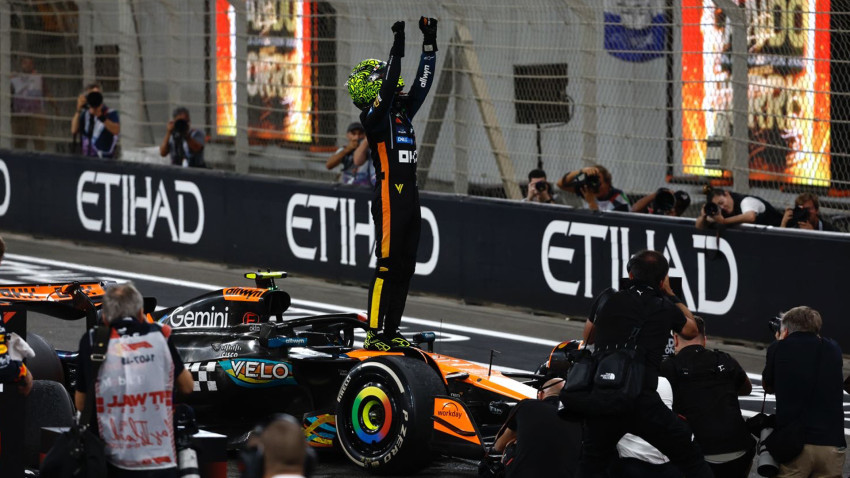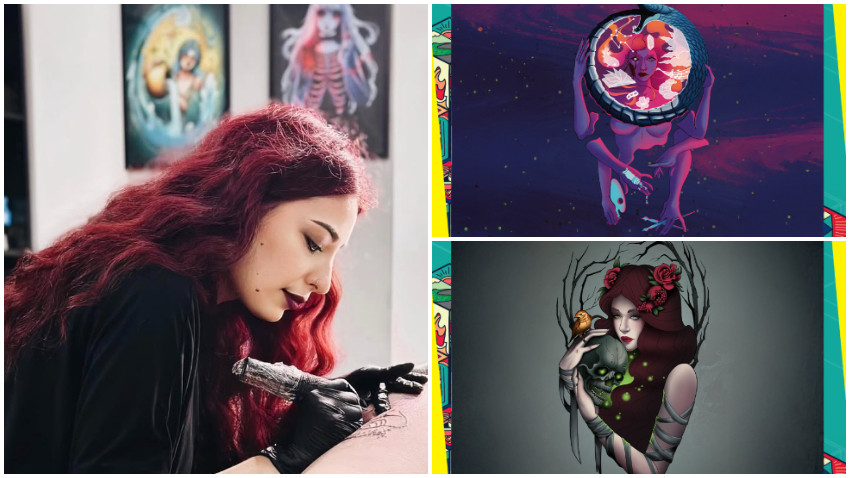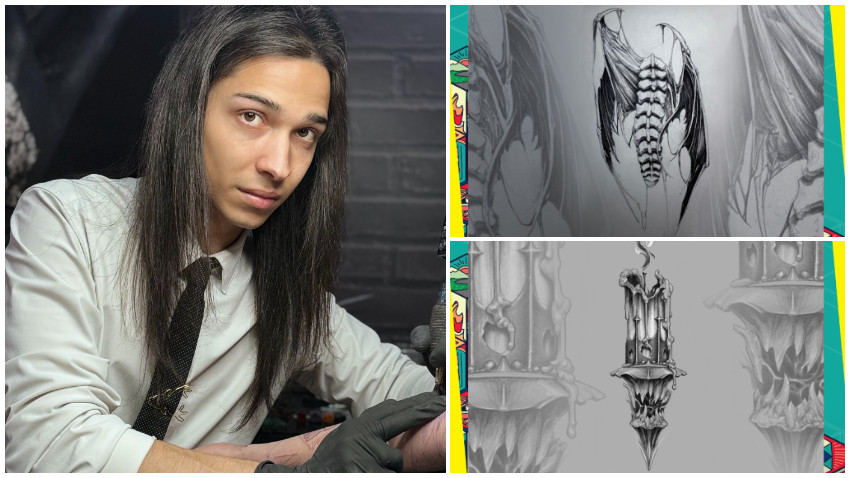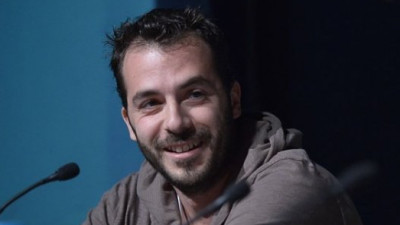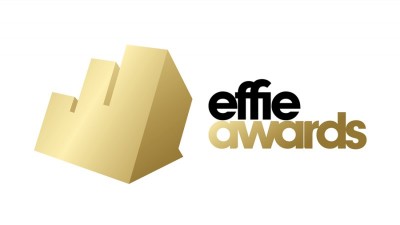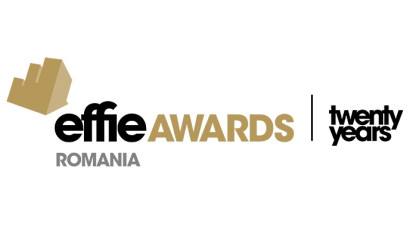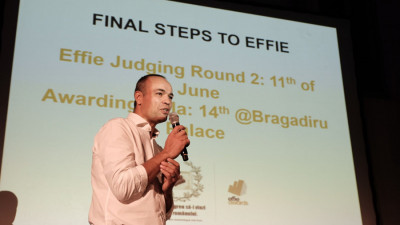After having spent 8 years in BTL and getting his Master's degree in Business Administration, Dimitris Tsoutsos, Executive Strategy Director at McCann Worldgroup Romania, was well aware of how the advertising industry works. So he joined it. Initially, he actually wanted to become an orchestra conductor, but ended up planning for ad agencies. Yup, you read that well. Dimitris graduated from "Musicology and Music Performance", and the plan was to orchestrate some music. It wasn't meant to be.
He came to Romania because McCann Bucharest is a good agency, but also because the advertising industry in Greece is going through a crisis which prevented him to grow at an acceptable rate. So here he is among us. The differences between Greece and Romania are not that many nor that significant actually, he tells us.
It used to be different back in the day:
In the mid 2000s planning was a “nice-to-have” discipline for most of the agencies in Greece. Back then not only there were very few planners in the market but also their job was usually considered as the introduction to a brilliant creative idea.
When discussing the topic of juniors, Dimitris is optimistic. In planning you learn a lot of things, provided you allow the pupil to get into the action and make time for him/her. McCann Bucharest is closely keeping an eye on ad schools and IAA. If you feel like reading an interview with music metaphors and comparisons that include the great Mozart.
[Versiunea in limba romana a interviului se gaseste aici.]
How did you get into Planning?
After successfully failing to become an orchestra conductor!
Let me explain: my first degree was in Musicology and Music Performance. I wanted to continue my studies in conducting but it proved I was too old for entering this amazing yet bloody world.
So, back to the drawing board and re-planned everything. Already working in the BTL market for 8 years and through my post-graduate studies in Business Administration I had a pretty clear picture of the advertising disciplines. Even if most people love the creative process, I was always attracted to those “lone wolves” that others called planners.
Somehow I knew that it was something I could do in a successful way… (or at least successfully fail again!). You see, one of the basic skills of a musician is to take the same piece of music, written perhaps hundreds of years ago and already performed by numerous other artists and find a new way to say something fresh about it. I would say it’s pretty much the same with planning.
You get a problem or a challenge and you deconstruct everything in order to find a new way of interpreting it, a direction that no one has seen before, and therefore come up with a unique business solution.
However, at the end, your interpretation should deliver the requested business result in a solid and concrete way. Like in music, where no matter how you decode the score, a Mozart Sonata should always sound like a Mozart Sonata. That’s what people paid to listen to.
During my first years in planning I was lucky enough to work with the first and most experienced planner in the Greek market, Dimitris Papazimouris. As he confessed to me at some point, during our first interview, it was those musical skills of deconstructing the “known” to reach the new and the “unknown” that made him hire me and invest his time in me.
He is the one who, among other things, taught me to always challenge my thinking and never rest on the easy first ideas that usually come in a planner’s mind when receiving a client’s brief. I still consider his contribution to my career of utmost importance and I will always thank him for that. Besides he was the first who also believed in my ability to transfer my
Coming to Romania
Unfortunately, in the past 6 years, the Greek advertising market has been shrinking due to the financial crisis the country is going through.
It was a deep personal need to evolve, to move faster than the market allowed me to, to gain more experience and work on larger scale projects and brands, beyond the borders of my country.
Being part of the international family of McCann, gave me the opportunity to get in contact with people from other markets, with international experience and broader thinking. In that context and with the mentoring of Harjot Singh, our Chief Strategy Officer in McCann Europe, I decided to grab the opportunity of joining the McCann Bucharest team, the most famous and awarded McCann office in the entire region.
Moreover, the country’s economic growth creates the perfect challenging environment that demands bold thinking both in strategy and creative. What better option could I get, at least within the continent?
So I would say that planning was a rather conscious decision. I was charmed by the freedom to combine business with sociological and psychological aspects of human behavior.
Greece & Romania. Differences
Not many differences I would say. You see, at the heart of advertising you always have the same kind of people, those crazy ones who are passionate to find a creative solution to a business problem. However, in a market under crisis like the Greek one, the conditions are usually more stressful and stress doesn’t always result in creativity that works for the brands.
At the same time, the different size of the market here in Romania allows for more flexibility and experimenting and gives us the opportunity to dig deeply in order to come up with the right solution. I think that the performance of the Romanian office at the local Effie Awards and in Cannes is the “living” proof of that.
Changes in planning over the years
I think in the mid 00s planning was a “nice-to-have” discipline for most of the agencies at least in Greece, where I started my career. Back then not only there were very few planners in the market but also their job was usually considered as the introduction to a brilliant creative idea.
However, in the past 5 years we witnessed a total change in that perception on a global level. Both the brands and the agencies understood that the role of the strategist is not only about finding some interesting human truths, insights or tensions but to explore and discover the right direction that will lift the consumer barriers or will increase the engagement with the product in order to finally increase its sales.
So I would say that today a planner’s job is much more demanding but also much more appreciated. I think that the fact that even Cannes Creativity Awards introduced the Effectiveness category proves that strategy is a pivotal part of the whole procedure.
Planning. Harder to get in?
Yes. It’s not easy and I think for two reasons. First, the number of job openings. Planners do not exceed the 10% of an agency’s workforce and that percentage is even lower when it comes to smaller, local offices.
Then, it’s the required set of skills a planner should have. We usually look for people with multiple perspectives, with deep human understanding and cultural relevance, but at the same time people who are able to understand the business case in a fast and efficient way. Unfortunately, in the era of specialization, we lack these profiles.
Working with juniors
McCann Bucharest follows an open philosophy. We work closely with University departments and the IAA. We try to transfer the experience and the knowledge of our organisation to the future professionals of the market.
Through that connection we spot and recruit interns or juniors giving them the opportunity to live in the agency, test themselves in different disciplines and decide what fits their skills and their personality better. And make sure that if we feel that there is good potential into someone, we will keep him or her in the organisation. Besides McCANN has always been about investing in great people.
Apart from the skills we already talked about, I consider one more as the most important one: curiosity about everything. It’s more than knowledge or keeping oneself updated. It’s not about what’s happening out there but why is it happening. A good planner should always wonder and challenge everything.
It’s the only way to get to the truth of the people and to connect the brand with their lives in a meaningful way. As for past experience in advertising, I think it’s a plus, especially if he or she is coming from the creative side.
But I would never say it is a mandatory. Usually people outside the industry are bringing extreme added value in an agency and helps others to see things under different angles.
For me, it’s about giving space to people from the very first day. Make them feel the trust and confidence in order to instinctively express their thinking with no filters. It’s us, the senior executives, who should apply the filters at a later stage. Allow them to make mistakes and correct them by explaining why or why not. Engage them from the beginning in large scale projects. Build on what they propose and take it further. It’s not about teaching someone the theory and then wait for the correct answer from the very first time.
Becoming a good planner requires a lot of experience and exposure, a lot of back and forth until you have the seniority to control your gut feeling yet to use it properly within the business content and the data you get in hand.
Grooming a strategist
I don’t think there is a specific time frame for that. It totally depends on three factors: the skills and the speed of the trainee, the amount of time the senior strategists are willing to invest into the trainee and last the opportunities the office offers according to its clients.
Perhaps the most difficult stages to teach are to deal with rejection, be a great storyteller but an even greater listener and above all be humble.
The new kids
If you don’t mind, I still want to consider myself as the new generation of AdMen. I think that we are the lucky ones. We got all the experience from the previous generation and now we have the ability to enrich that with the magnificent world of big data.
Of course, in the past 4-5 years some overdid it with the data and forgot the value of a big human idea. But I think we are finding again our way towards balance between rational driven thinking and emotional driven solutions. After all, we are the generation of trial and error. We learn from our mistakes and we keep inventing the next enhanced version of ourselves.


![[Strategul si juniorii] Dimitris Tsoutsos (McCann Worldgroup Romania): Usually the ones who come from outside the industry add value to the agency](https://media.iqads.ro/2017/08/d-tsoutsos-head-of-strategy-mccann-bucharest1-cover-850.jpg?v=201806270151)

